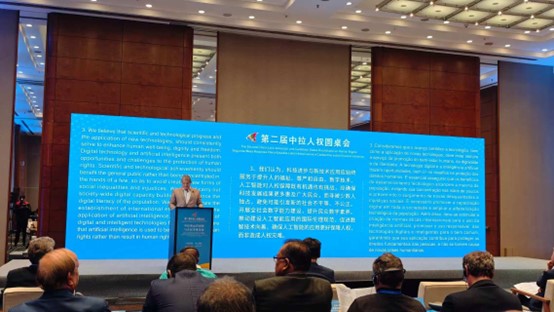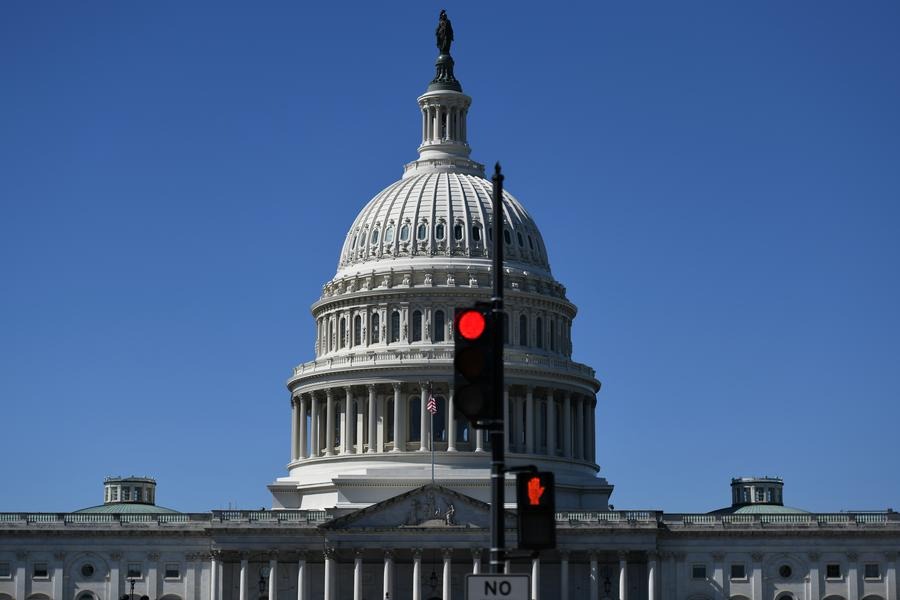The S?o Paulo Consensus: a Global South blueprint for human rights cooperation


The world stands at a pivotal juncture, characterized by escalating geopolitical tensions, resurgent unilateralism and complex global risks - the protection and governance of human rights face unprecedented challenges.
Against this backdrop, the Second China-Latin American and Caribbean States (China-LAC) Roundtable on Human Rights, which convened representatives from 20 nations in S?o Paulo on Friday, delivered a powerful statement: the S?o Paulo Consensus on China-Latin American and Caribbean States Human Rights Communication and Cooperation. This document articulates a distinct, cooperative vision for advancing human rights, rooted firmly in the perspectives and priorities of the Global South.
The consensus begins by reaffirming a core principle often marginalized in dominant discourse: human rights possess both universality and particularity. It asserts unequivocally that each nation's human rights path must be grounded in its unique "history, culture and stage of development". This is not a rejection of universal ideals, but a powerful insistence that effective protection models are intrinsically linked to national contexts.
Crucially, it champions the integrated promotion of all rights – civil, political, economic, social and cultural – ensuring equitable enjoyment across all social groups. The foundation for this progress? A peaceful, stable environment and robust socio-economic conditions, demanding the removal of all obstacles to human rights advancement.
Moving beyond a philosophical grounding, the S?o Paulo Consensus tackles pressing modern challenges head-on. It recognizes the double-edged sword of technology, particularly digital advances and artificial intelligence. While offering immense potential to enhance "human well-being, dignity and freedom", these technologies risk exacerbating inequalities if their benefits are concentrated "in the hands of a few".
The solution proposed is multifaceted: global digital capacity building, enhanced public digital literacy and, crucially, the establishment of international ethical norms for AI. The goal is clear: harness technology for good and prevent new human rights crises.
Environmental justice is elevated to a fundamental human rights issue within the consensus. Declaring a "sound ecological environment" as "the most inclusive [for] people's well-being", it directly links climate change and pollution to the rights to subsistence and development. The call is for high-quality, green economic growth benefiting both present and future generations, coupled with collaborative governance ensuring environmental benefits reach everyone, especially the poor and vulnerable.
Significantly, it demands recognition of the dual needs of Global South nations: the right to develop economically while protecting their environment, formulating climate plans based on their specific "development stages and capacities".
The consensus is fundamentally action-oriented. It champions "cooperation for development, promoting human rights through development" as the pathway to building a genuine China-LAC community with a shared future. Economic and industrial collaboration must prioritize human rights protection, safeguarding laborers' rights.
Key areas for intensified cooperation include poverty reduction, green development and scientific innovation, bolstered by robust cultural and academic exchanges.
Finally, the S?o Paulo Consensus delivers a powerful rebuke to the politicization of human rights. It advocates "true multilateralism" and demands a "more fair, just, reasonable and inclusive global human rights governance". It explicitly opposes using human rights as a pretext for interference in internal affairs and reaffirms the central role of the United Nations, particularly the Human Rights Council, as the core platform for global governance.
The S?o Paulo Consensus is more than a document. It outlines a collaborative, context-sensitive, development-focused and anti-politicized approach to human rights. By establishing mechanisms like the proposed "China-Latin American and Caribbean States on Human Rights Research and Cooperation Network", it signals a commitment to turning this vision into sustained action.
In a fractured world, this consensus offers a distinct and vital pathway for advancing the fundamental dignity of all people.

































